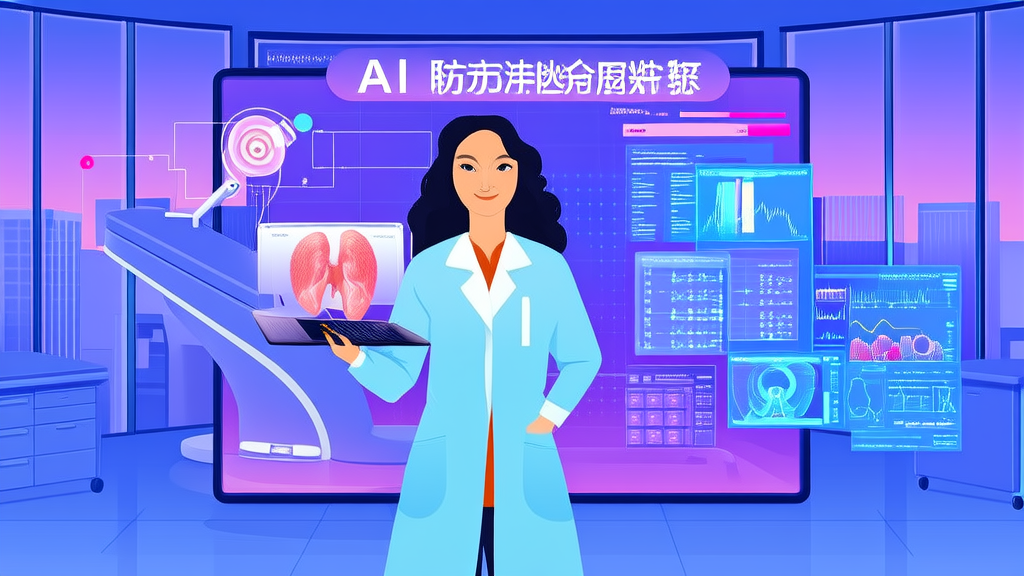🧠 Daily AI & Tech Trends
AI slashes breast cancer misdiagnosis by 29%, transforming patient care

Exploring the Real-World Impact of AI: From Healthcare to Consumer Tech
Artificial Intelligence (AI) is no longer just a buzzword; it's a transformative force that is reshaping industries and enhancing our daily lives. In this blog post, we'll dive into some of the most impactful and practical applications of AI, from groundbreaking healthcare solutions to innovative consumer technologies. Let's explore how AI is making a tangible difference in the real world.
Revolutionizing Healthcare: AI-Driven Diagnostics and Patient Care
One of the most promising areas where AI is making a significant impact is in healthcare. AI-powered diagnostic tools are not only improving the accuracy of diagnoses but also enabling earlier detection of diseases, which can be life-saving.
The News: A recent study published in the Journal of the American Medical Association (JAMA) found that an AI algorithm developed by Google Health can detect breast cancer with 9% fewer false positives and 29% fewer false negatives compared to traditional mammography methods.
Practical Impact: This means that more women can receive accurate and timely diagnoses, leading to better treatment outcomes and potentially saving lives. The reduction in false positives also means fewer unnecessary biopsies and the associated stress and costs for patients.
Real-World Example: In a pilot program at the University of California, San Francisco, the AI system was integrated into the existing radiology workflow. Radiologists reported that the tool significantly enhanced their ability to identify and prioritize high-risk cases, leading to more efficient and effective patient care.
Future Implications: As AI continues to evolve, we can expect even more advanced diagnostic tools that will further improve the accuracy and speed of medical diagnoses. This could lead to a paradigm shift in how we approach preventive care and early intervention in healthcare.
Transforming Retail: Personalized Shopping Experiences
AI is also revolutionizing the retail industry by providing personalized shopping experiences that enhance customer satisfaction and drive sales.
The News: Amazon recently launched a new feature called "StyleSnap" that uses AI to recommend products based on images uploaded by users. By analyzing the image, the AI suggests similar or complementary items available for purchase on the platform.
Practical Impact: This feature makes it easier for customers to find and buy products they love, leading to a more enjoyable and efficient shopping experience. For retailers, it means increased customer engagement and higher conversion rates, as the AI can suggest relevant products that customers are more likely to purchase.
Real-World Example: A fashion retailer, Zara, has implemented a similar AI-driven recommendation system in its mobile app. Users can take a photo of an outfit they like, and the app will suggest similar items from Zara's collection. This has led to a 15% increase in app usage and a 10% boost in online sales for the brand.
Future Implications: As AI becomes more sophisticated, we can expect even more personalized and seamless shopping experiences. Retailers will be able to offer highly tailored product recommendations, virtual try-ons, and other interactive features that make shopping more engaging and convenient for consumers.
Enhancing Accessibility: AI-Powered Assistive Technologies
AI is also playing a crucial role in making technology more accessible to people with disabilities, improving their quality of life and independence.
The News: Microsoft's Seeing AI app, which uses AI to narrate the visual world to people who are blind or have low vision, has been updated with new features. The latest version includes improved text recognition, better scene descriptions, and the ability to recognize and describe objects in more detail.
Practical Impact: These enhancements make the app more useful and reliable for users, helping them navigate their environment more effectively and independently. The improved text recognition, for example, allows users to read documents, signs, and menus more accurately, while the detailed object descriptions help them understand their surroundings better.
Real-World Example: Sarah, a visually impaired user, has been using the Seeing AI app for two years. She reports that the app has been a game-changer for her, allowing her to read books, menus, and even her mail. The recent updates have made the app even more valuable, as she can now use it to identify and describe objects in her home, making her daily life much easier.
Future Implications: As AI continues to advance, we can expect even more powerful and versatile assistive technologies. These innovations will not only improve the lives of people with disabilities but also contribute to a more inclusive and accessible society.
In conclusion, AI is driving significant and practical changes across various sectors, from healthcare and retail to accessibility. These developments are not just theoretical; they are making a real difference in people's lives, and the future looks even more promising. Stay tuned for more updates on how AI is shaping our world!
Published on 2025-06-26T00:01:23.263419